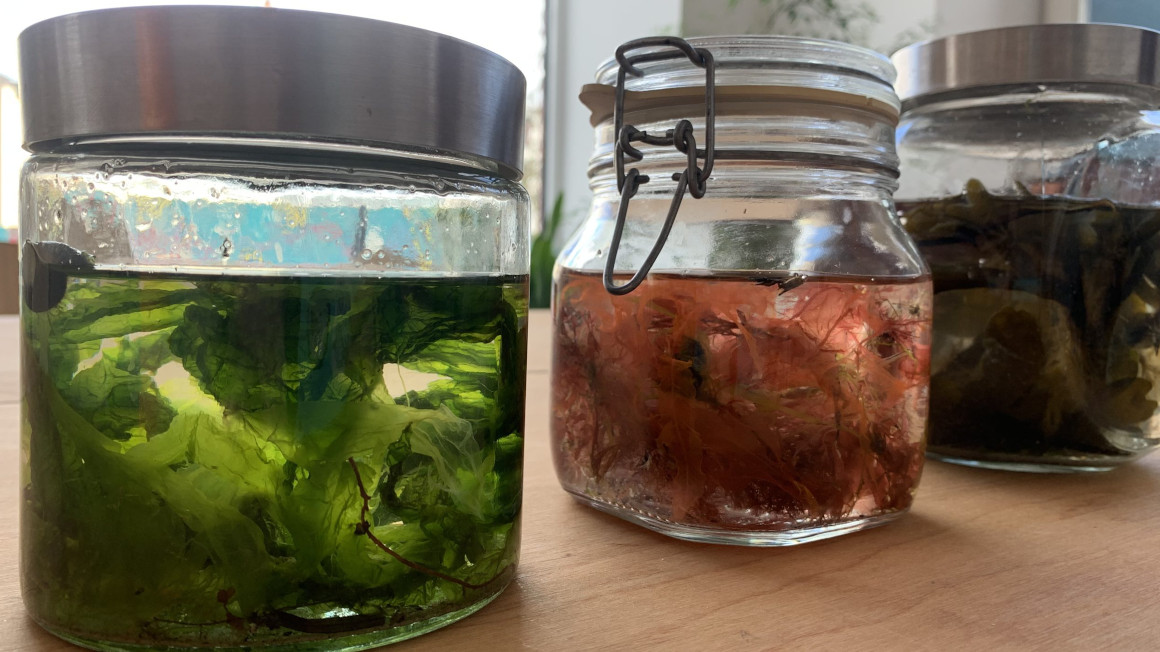Establishing algae cultivation in the Baltic Sea
Under the leadership of the Rostock-based Alles Alge association, researchers and companies want to jointly develop a system for cultivating macroalgae in the Baltic Sea.

Algae on the beach are rather annoying. However, these unloved aquatic plants are not only important for the marine ecosystem, as they can filter pollutants. Algae are also a valuable raw material for the bioeconomy for the production of food, pharmaceuticals, cosmetics, biomaterials and biofuels. In order to utilise this potential, microalgae have so far been cultivated in plants on land. Algae farms in the sea are barely established in this country.
This is set to change. As part of the Plant3 joint project "AlgaeGreen", a system is to be developed to successfully cultivate algae in the Baltic Sea. The project is being led by the Rostock-based Alles Alge association and is being funded by the Federal Ministry of Education and Research (BMBF) from April 2024 to December 2025 as part of the "WIR! - Change through innovation in the region" funding programme. Researchers from the University of Greifswald and DLE GmbH from Penzlin are involved.
Establishing cultivation systems for regional algae cultivation
Specifically, the cultivation of the algae species Ulva spp. and Furcellaria lumbricalis is to be established. To this end, the association wants to work with the Greifswald researchers to develop adapted cultivation systems for several selected locations on the Baltic coast of Mecklenburg-Vorpommern, carry out reproduction and growth experiments and test harvesting and preservation methods.
Attracting and inspiring stakeholders
In addition, the aim is to sensitise the public and, above all, key stakeholders in the region to the topic of algae cultivation in the Baltic Sea. To this end, methods are to be developed that inspire the participants. Target group-specific formats with interactive concepts are planned, as well as educational trips on traditional ships in the Greifswald Bodden.
Creating acceptance for food made from algae
The project partner DLE from Penzlin will once again focus on the topic of "Algae in contemporary nutrition" and develop prototypes of typical regional foods made from algae. However, an important milestone in the project is consumer acceptance of these new foods. Here, the DLE wants to use its contacts within the sector to interest the local food industry in the topic of "algae from the Baltic Sea".
The project team hopes that many interested parties from the region will be inspired by the topic of algae cultivation and participate in the project - be it from education, catering, fisheries, politics or nature conservation. "We want to engage in dialogue and work together to find solutions for a more sustainable use of our marine resources," appeals the project team.
The BMBF funding programme "WIR! - Change through innovation in the region" aims to initiate new regional alliances and sustainable innovation-based structural change in all economically less developed regions of Germany.
bb


